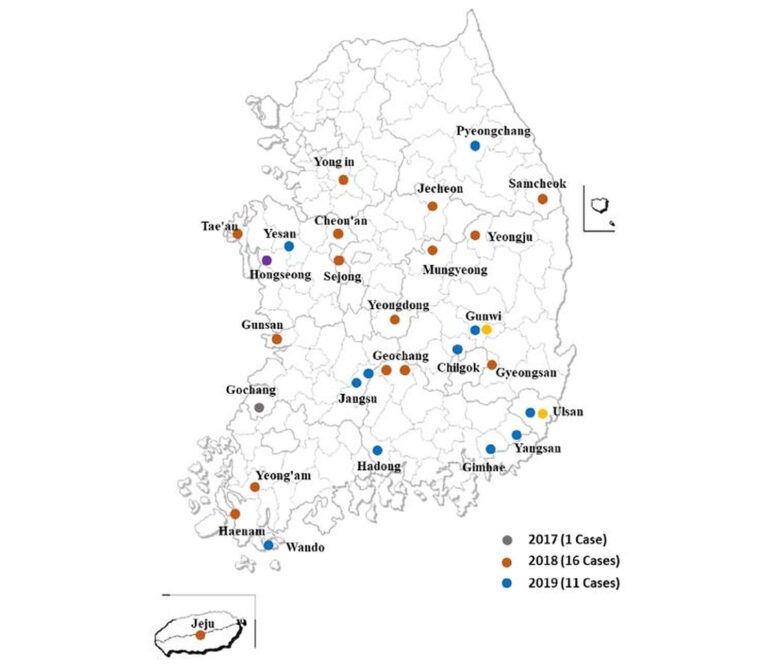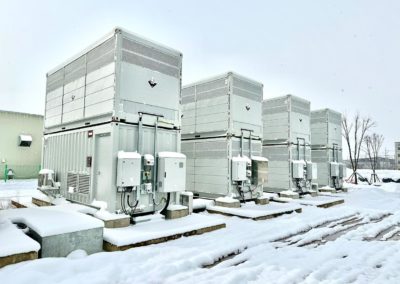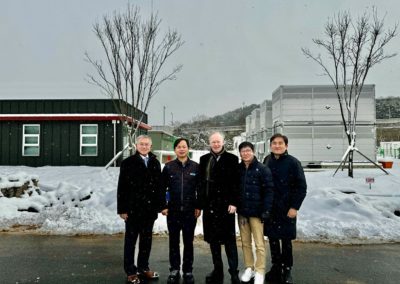KEPCO
Proving the benefits of VFBs for Korean energy security
The Republic of Korea (Korea) needs a secure, stable energy supply as the country’s national power grid is an isolated system with no cross-border transmission lines and demand is met entirely through local production. Currently, 40% of total electricity generation comes from coal, with gas, nuclear and renewables providing the rest. Most of the country’s electricity generation is concentrated in its southern provinces and consumption is concentrated in urban areas. As Korea transitions towards a solar and wind-based grid, energy storage is increasingly required to provide further energy security.
The Brief
The Korean Electric Power Company is the national electricity utility of Korea, responsible for the operation of the country’s electricity transmission and distribution network. Having initiated a ‘Zero for Green’ vision so that the country can transition to a zero-carbon grid, KEPCO is trialling vanadium flow batteries as a possible solution to achieving this vision.
Having already successfully tested Invinity’s VFBs for their own purposes, KEPCO’s project partner Hyosung Heavy Industries chose our battery energy storage systems for the project.
VS3
Up to
duration
The battery will be operated by KEPCO over a 6-12 month period performing a wide range of grid services to gather performance data of Invinity’s VFB in the Korean grid environment. The project aims to validate Invinity’s battery for wider use within the Korean power network.
Safe
No fire risk – the electrolyte is a water-based solution
Economical
Low cost per MWh on a Levelized Cost of Storage (LCOS) basis. Fully recyclable.
Long Life
Unlimited daily cycles – over 20 years of continuous operation
The Result
Delivery and installation of the battery system was completed in 2023 and it was successfully integrated with Hyosung’s PCS and EMS.
Battery Safety: A Key Priority For Korea
Korea is an attractive market for energy storage due to its high per capita energy use, constrained grid infrastructure and significant government support for renewable and energy storage projects. It is still thought of as one of the most mature energy storage markets in the Asia-Pacific region, however between 2017 and 2019, the country witnessed 28 battery storage fires (16 in 2018 alone) that brought the country’s energy storage marketplace almost to standstill. The incidents were investigated by Korea’s Ministry of Trade, Industry and Energy (MOTIE) and their report identified that potential manufacturing defects and poor installation practices were amongst the key reasons for these fires.

The locations of the 28 battery fires
Image: Ulsan National Institute of Science and Technology
A further, more significant lithium-ion battery fire in late 2022 knocked out a major data centre which caused banking, ride-sharing and online delivery services to be out of action for a number of days. The Korean government proposed a tightening of safety measures in 2022 to address this issue and this renewed focus on safety has led to a significant increase in demand for non-flammable, safe battery technology such as Invinity’s vanadium flow batteries.
Korea still recognises the importance of increasing the volume of renewable generation to enable the country to continue to decarbonise. MOTIE’s 10th Basic Plan for Electricity Supply and Demand forecasts an increase in the supply of renewable generation and includes an Electricity Market Reform that will see the market “be diversified by introducing a long-term contract market for low-carbon power sources (such as hydrogen and ESS), a real-time market that can reflect supply and demand conditions in real time, and an auxiliary service market that commercializes and trades reserve power.” Any increase in the volume of renewable generation on the grid creates more opportunities for energy storage deployments. Encouragingly, MOTIE recently issued its first central contract market for low-carbon power alongside a tender for a large-scale, longer duration (4 hour) battery storage system. This highlights that the Ministry recognises that longer duration storage will bring significant decarbonisation benefits as it counteracts the intermittency of renewable generation.
Partners
Interested in Finding Out More?
If you’re a utility, developer, EPC, or financier please contact our commercial team to discuss the details of your project. We work with you to develop a robust business case and financial model.


